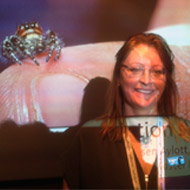'Win-win' or 'no deal'

Anne-Marie Svendsen Aylott
Intriguingly, Anne-Marie Svendsen Aylott began her session on 'Negotiation Skills' at the BSAVA Congress by negotiating with the audience to decide which aspects of the subject they would like to cover!
She explained that when setting out on negotiation skills it is important to look at the bigger picture and break things down into component parts prior to actually engaging in the negotiation. Think about your mindset. "If you think it will be a fight, then it will be a fight," she said.
Before you begin, it is important to know the other person – their beliefs, values and the way they assimilate information. Big picture or detail? What do you think is the preferred outcome for the other person?
Timing is important too; never present more than three choices and have your 'walk away' point set in your mind – the point at which it is not worth continuing. Engage in research to establish shared values and pre-empt objections before you begin the negotiation.
Another part of the process is building rapport through body language (non-conscious mimicry). It improves 'liking', creates a more helpful mindset and offers opportunities to spot shared language which can help you understand what the person is really thinking and lead to more profitable discussion.
Always control your emotions and turn aggression directed towards you into positives. Summarise as progress is made and maybe refocus or reschedule if necessary. Finally, know when to stop. Is it a 'win-win' or 'no deal'?



 The Federation of Independent Veterinary Practices (FIVP) has announced a third season of its podcast, Practice Matters.
The Federation of Independent Veterinary Practices (FIVP) has announced a third season of its podcast, Practice Matters.